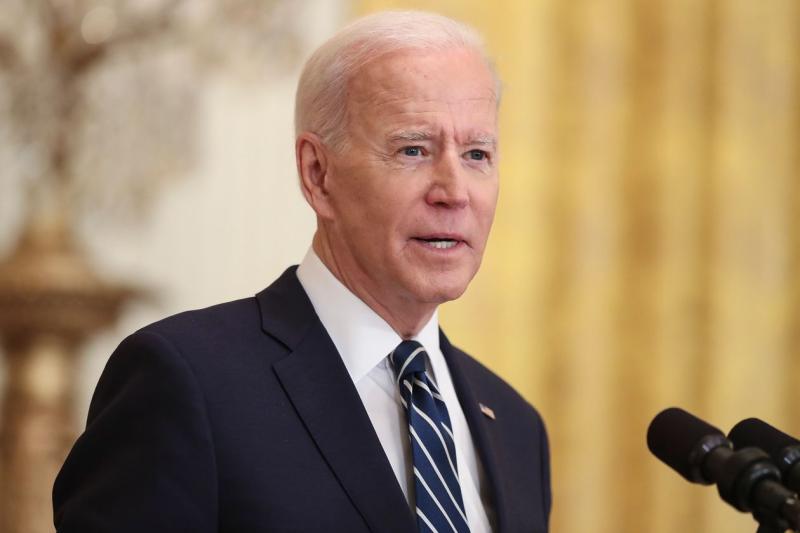Biden Commissions the Supreme Court - WSJ
By: The Editorial Board (WSJ)



President Biden on Friday announced his Presidential Commission on the Supreme Court, which is better understood as the commission on packing the Supreme Court. The White House is trying to make this seem like routine political business, but don't be fooled.
Packing the Court hasn't been actively debated since FDR's attempt flopped in the 1930s. Then again, many things Democrats are doing these days haven't been tried since the 1930s. Democrats had a meltdown over Donald Trump's three High Court appointees, and Mr. Biden's commission idea was a way to appease progressives and avoid taking a firm position during the 2020 campaign.
"The Commission's purpose is to provide an analysis of the principal arguments in the contemporary public debate for and against Supreme Court reform, including an appraisal of the merits and legality of particular reform proposals," says a White House press release. "The topics it will examine include the genesis of the reform debate; the Court's role in the Constitutional system; the length of service and turnover of justices on the Court; the membership and size of the Court; and the Court's case selection, rules, and practices."
The commission will have an unwieldy 36 members, who tilt markedly to the political left. The co-chairs are Bob Bauer, Barack Obama's former White House counsel, and Cristina Rodriguez, a former official in the Obama Justice Department. Mr. Bauer has argued publicly against court-packing, but he'll have his hands full with the commission.
The White House release says Duke law professor Guy-Uriel Charles "writes about the relationship between law and political power and law's role in addressing racial subordination." Caroline Fredrickson is a former president of the American Constitution Society, the left-wing legal lobby. Michael Waldman runs the Brennan Center for Justice, the highly partisan legal shop at NYU that wants to restrict political speech. Laurence Tribe is the Harvard professor whose Twitter feed hasn't helped his reputation for judgment or reason.
Former appellate Judge Thomas Griffith, a Bush appointee, was a member of the Code of Conduct Committee of the U.S. Judicial Conference that tried to ban judges from belonging to the Federalist Society. Judge Griffith was going along for that ride until we reported the news and hundreds of federal judges objected.
The commission includes a few legal conservatives, notably scholar Adam White, who has contributed to these pages; Princeton professor Keith Whittington ; and Caleb Nelson, a University of Virginia law professor and former clerk to Justice Clarence Thomas.
The danger is that these conservatives will lend a bipartisan patina to a commission that by its very existence is meant to pressure the Supreme Court. The threat of court-packing is intended to make the Justices think twice about rulings that progressives dislike. Many of our legal friends think the threat has already had a notable impact on Chief Justice John Roberts on gun rights and abortion cases.
The commission will have six months to report, and during that time it will come under pressure from Democrats determined to weaken judicial review of their policies. Sen. Dick Durbin, who chairs the Judiciary Committee, signed on to a 2019 Supreme Court brief all but threatening the Justices with court-packing if their ruling in a Second Amendment case displeased him.
The irony of this commission is that the Democratic Party is already in a position to shape the federal courts through normal channels. Judges appointed by Democrats have begun to retire, and most of Mr. Biden’s nominees will sweep through the Democratic-controlled Senate.
The contention that judges appointed by Donald Trump are political apparatchiks was dramatically repudiated when they swatted aside unsupported Republican challenges to the 2020 election. Their constitutionalist philosophy will create more space for the political branches of government to function as designed. That’s how the separation of powers is supposed to work. The Biden commission has more than a whiff of the executive branch telling the judicial branch how to do its job.
No less than Justice Stephen Breyer said in a speech this week that adding Justices would damage the public’s view of the Court and the rule of law. “Structural alteration motivated by the perception of political influence can only feed that latter perception, further eroding that trust,” he said. Court-packing may not be possible in the current Congress, but Justice Breyer’s timely intervention suggests the prospect isn’t as remote as some think.
Public trust in American institutions is dangerously low, and the Supreme Court isn’t immune. If the commission endorses court-packing, or some other “reform” that smacks of an attempt to shape legal outcomes, the political backlash will be furious. As Mr. Biden himself said on the subject way back in 2019, before he moved left in 2020, “we’ll live to rue that day.”






